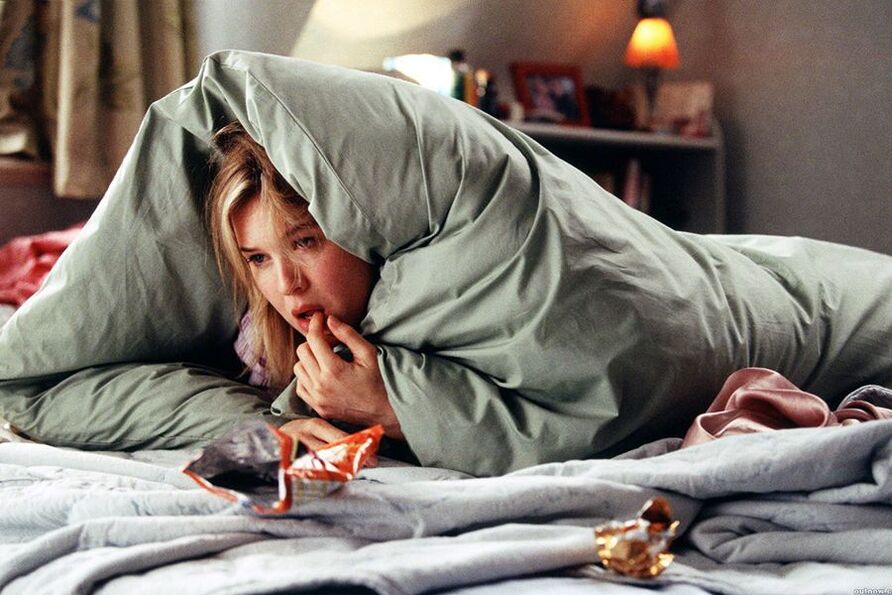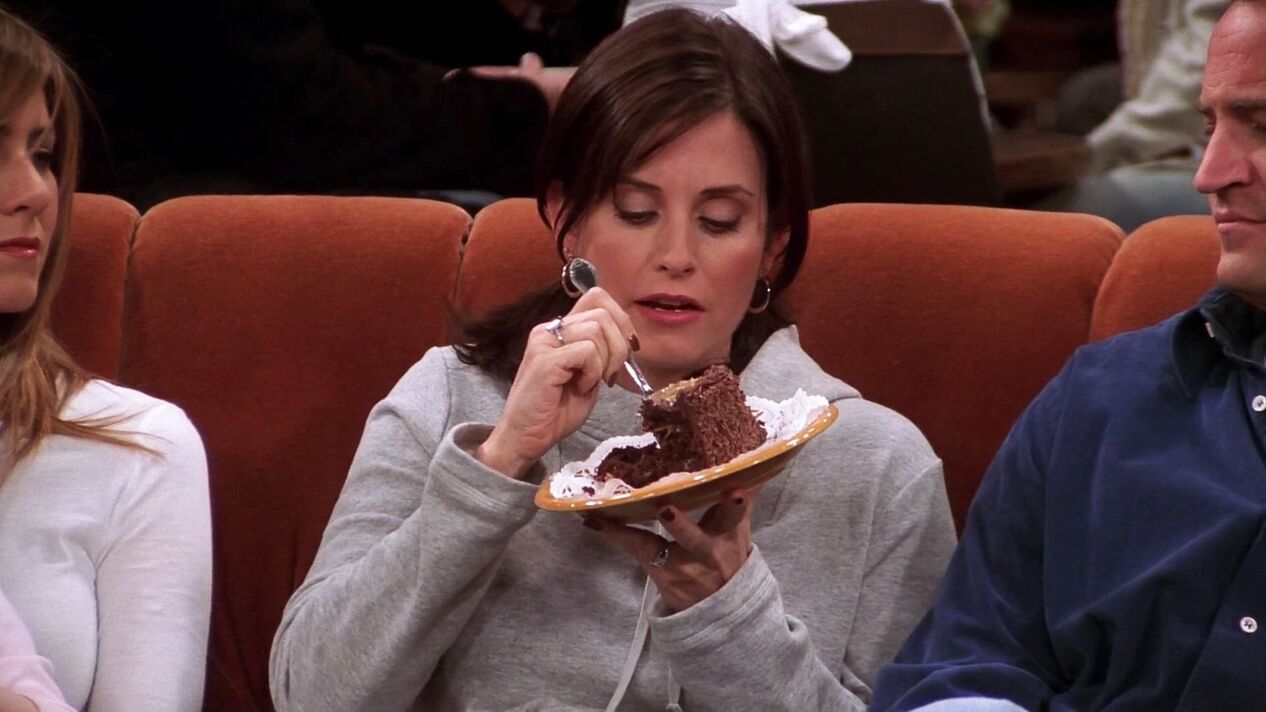
The title contains a popular search engine query. But this article won't offer advice like "count to 10 and have a glass of water". Let's talk about another thing: why forcing yourself not to eat to lose weight is a bad idea and how to deal with your attitude towards food.
What's wrong with not eating to lose weight?
Practicing psychologist: If you have a healthy attitude towards nutrition, then you are in touch with your body, you feel the signals of it and you know how to negotiate with it. If the body signals hunger, it satiates it; satiety, stop eating. The message "do not eat to lose weight" implies the breaking of this contact, the confrontation with oneself and the manifestation of self-aggression. It turns out that in order to achieve the goal (weight loss), you are taking measures against yourself. This is not goodorboring and unhealthyorin.
Psychiatrist: Most people who have lost weight due to a restrictive diet regain it within 1-2 years. Furthermore, 2/3 of them earn more than they lost.
Endocrinologist:The message of forcing yourself not to eat to lose weight is irrational. It is important to understand: what happens to the body? Perhaps it is not a question of an incorrect diet, but of hormonal characteristics.
And what is it: a healthy attitude towards food?
Psychiatrist: This is when regular meals and snacks aren't accompanied by anxiety, shame, and guilt. Lack of "forbidden foods", diet and calorie counting. And when you allow yourself to enjoy the food.
Endocrinologist:It is about treating food as a condition for a fulfilling and happy life. And not as a substitute for joy and pleasure.
Practicing psychologist: This is when you eat from hunger, you stop when you are full, you do not focus on the deficiencies of your body, which must be "corrected" with food or refusal from it, when you do not overeat, do not grasp the emotions.
Can you give him more details? How and why do we eat emotions?
Practicing psychologist: There are no good and bad emotions for the psyche, it can cope with any. He doesn't need food, alcohol, gadgets or TVs for this. But there are situations when a person stifled his emotions with food. Upset, I ate a bowl of ice cream - it got easier. His behavior received positive reinforcement and the person started resorting to this strategy over and over again.
Consultant psychologist:Often people overeat because they have no rest. Let me give you an example. A young woman had a problem: she eats a lot in the evening and she can't help herself. It turns out that she works for three, because she doesn't know how to turn down colleagues. There is no time for a bite: business all the time. And she can't eat in the evening. That is, a person gets exhausted, overworked, she is always stressed out. How to replenish the lost energy? Burgers, potatoes, chocolate.
It turns out that if a person eats when she is bored, anxious, angry, tired or sad, is that wrong?
Consultant psychologist:By itself, this is neither good nor bad: food is subconsciously associated with safety. For a newborn, food is not just food, but closeness to the mother, calming, trust, acceptance, love, communication. Adults also sometimes eat to calm down. It's bad when it's the only way to deal with anxiety or fear.
Psychiatrist: With food we satisfy various psychological needs. For example, having dinner with your family is intimacy. Going out to a restaurant with friends closes the need for social interaction. The problem arises when food becomes a crutch for our negative experiences. This brings us to the subject of an eating disorder (EID) or eating disorder. Psychiatry deals with these problems.
Wait wait! It turns out that if I ate a chocolate bar overtime and feel guilty, is that already a nuisance? Should I go straight to the psychiatrist?

Practicing psychologist:Complex problem. There are situations when a person eats in a rush, chaotically, does not pay attention to what he eats. Or he eats when he is not very hungry, out of boredom or for company. It could just be an eating disorder that can be corrected with a nutritionist. But, at the same time, eating out of hunger is one of the symptoms of RIP. The line is very fine. And only a doctor can determine this. In our country, a psychiatrist is engaged in this.
Endocrinologist:It happens that a person is constantly sad, worried, tired and seizes these problems. Perhaps this is the result of constant stress. But they are also symptoms of endogenous depression and anxiety neurosis. A psychiatrist is also involved in diagnosing these conditions.
But isn't it ERP - Bulimia and Anorexia? Symptoms are difficult to confuse
Psychiatrist: It's not just bulimia and anorexia. Eating disorders also include psychogenic overeating (also called paroxysmal or compulsive), eating inedible food (Pick's disease), and psychogenic loss of appetite. These are disorders included in the International Classification of Diseases (ICD). However, there are disorders that are not included in this list, but also attract the attention of psychiatry: selective eating disorder, orthorexia (when the desire for a healthy lifestyle goes beyond all boundaries) and pregorexia (the most restrictive diet in pregnant women). .
Practicing psychologistPsychology also distinguishes overfeeding syndrome (BOE): when a person eats almost nothing all day, cannot sleep for long, or often wakes up and, waking up, goes to the refrigerator.
Is obesity an ERP too?
Psychiatrist: Not always. The reasons can be many: these are genetics, a sedentary lifestyle and hormonal disruptions. It is not possible to equate RPP with obesity.
Practicing psychologist: Yes I agree. There are people with absolutely healthy eating habits who are obese. And the opposite happens - for example, patients with anorexia nervosa.
Have you heard that the RPP problem mainly affects women, teenagers and models? It is true?

Psychiatrist:Obviously not. The disorder can develop at any age in both men and women. For example, selective eating disorder occurs more often in children: the child eats only certain foods.
Practicing psychologist: Anorexia and bulimia are more common in women. But compulsive overeating - equally in men and women. So it is impossible to say that RPP is a purely female problem. And yes, teenagers, models, athletes involved in aesthetic sports (rhythmic gymnastics, figure skating, sports dance), TV presenters, bloggers, actresses - everyone who is in sight and whose work depends on appearance is at risk. But the problem can overcome any person, including those who are far from the modeling business or beauty blog.
Any nutritional problems are believed to be an attempt to attract attention. This is true?
Practicing psychologist: There is such an opinion, but it is not scientifically proven. Yes, during therapy it may turn out that PRP started when the person was not accepted by peers. For example, for a 13-15 year old girl, it is important that boys watch her and her friends approve of her, so she followed a strict diet. It also happens that problems with food are a child's attempt to get parental attention, often subconsciously. But these are quite special cases. It is a misconception that the need for attention is the main cause of eating disorders.
So what's the reason?
Practicing psychologist: There are three groups of reasons: biological, psychological and social. The biological - for example a genetic predisposition to PRC - can unfortunately be inherited. Psychological: domestic violence, prohibition of expressing negative emotions, violation of parent-child attachment (for example, if the child has cold and detached parents). Social: the cult of the ideals of beauty, thinness, bullying.
PsychiatristA: There are some personality traits that can contribute to the development of EID, such as perfectionism or hyper-responsibility. The peculiarities of eating behavior in the family, attitudes towards weight and figure also influence. The child could be rewarded with sweets for good behavior and study, and this has remained: since I am good, you can get a candy. Very good? I take ten.
Consultant psychologist:Many patients with ECD have experienced physical or sexual abuse. For many too, food helps to derive secondary benefits from the situation. For example, one of my clients needed weight to protect herself from men. In the course of therapy, we found out that at school age the girl had an unpleasant situation with an adult man. The client was surprised that she remembered him: this story seemed "forgotten", but she continued to influence the girl's behavior in adulthood. They also revealed the belief that men only love thin ones. If so, her extra weight helped her "be safe, " meaning no men.
How common are eating disorders in society?

Psychiatrist: The prevalence of PRC worldwide is believed to be around 9%. In risk groups, the prevalence is higher. There are studies in adolescent girls that report that by the age of 20, about 13% have symptoms of PCR. Anorexia is one of the deadly mental disorders, before chemical addiction alone.
Practicing psychologist: It is difficult to give exact numbers, because people with PAD often do not understand at all that they need help. There are numbers for the United States, a research and statistics center on eating disorders: there are about 30 million people living with eating disorders. Women are twice as many as men (20 million against 10 million). And every hour in the world at least 1 person dies from the consequences of RPE.
What are the symptoms of RPE? Can I diagnose it myself?
Psychiatrist: In general, the main symptoms are the following:
- A person makes themselves vomit after eating or compensates for what she ate in other ways, such as excessive physical exertion (physical tyranny), laxatives, and diuretics.
- Strong fixation on weight and figure (you can't add / lose a single gram or centimeter! ).
- Numerous attempts to reduce weight and body weight swing.
- Various numerous rules in nutrition (I only eat proteins, only vegetables, only red).
- Constant thoughts, fears and feelings of guilt and shame related to food intake and body weight. When thoughts and behaviors related to food bring a lot of suffering.
- Loss of control over the amount consumed.
But many can have such symptoms to varying degrees. Is there a more accurate diagnosis?
Endocrinologist:RPD is a chronic systemic disease. It causes metabolic changes in systems and organs, changes in human neurohumoral regulation. This is a complex problem that can manifest itself in neuroses, organic brain pathologies, organic injuries and depressive disorders.
But first you need to determine the cause of the symptoms. For example, if a person runs to the refrigerator at night, it is necessary to find out the level of glycogen to rule out insulin resistance and type 2 diabetes mellitus.
What if you understand that you or your loved one have an RPP?
Practicing psychologist: If you have - consult a psychiatrist for diagnosis. If you suspect an RPP in a loved one, it is more difficult: he often refuses, does not want to admit that something is wrong with him. And unnecessary pressure can break trust. Let your loved one know that you are on their side, ready to help and support.
Who treats ECD? Just a psychiatrist?
Psychiatrist: Not. A diagnostic psychiatrist. And it treats, depending on the disease, a psychiatrist, a psychotherapist, a clinical psychologist (as prescribed by a psychotherapist). Why is it so important to see a psychiatrist in the first place? Because it can reveal comorbid conditions such as depression or anxiety disorder, which are found in about 80% of cases in people with RPD. Treatment depends on the severity of the disease. It can be drug therapy in combination with psychotherapy (group, cognitive-behavioral, behavioral dialectic). Family therapy is also recommended.
Consultant psychologist:Anorexia and bulimia are mainly treated by a psychiatrist. Emotional overeating - psychologist, consulting psychologist. Obesity - a nutritionist-endocrinologist (it is necessary to check hormones, if the metabolism is disturbed) together with a psychologist or psychotherapist.
















































































